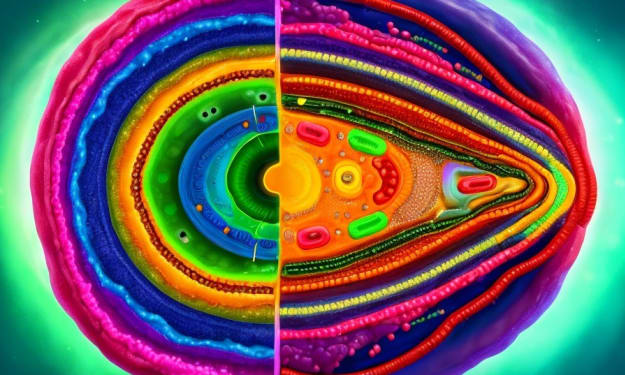Navigating the Change: A Comprehensive Guide to Understanding Menopause
From Symptoms and Treatments to Bone Health and Evolutionary Theories, Demystifying the Transition

Navigating the Change: A Comprehensive Guide to Understanding Menopause
Menopause, a natural stage in a woman's life marked by the end of her menstrual cycle, can evoke a mix of emotions. While some may view it as a liberation from the constraints of menstruation, others might experience physical and emotional discomfort due to hormonal fluctuations. This comprehensive guide delves into the world of menopause, exploring the causes, symptoms, treatment options, and the latest scientific theories surrounding this pivotal transition.
Understanding the Hormonal Shift:
The average age for menopause in the United States is 52. During this time, the ovaries gradually wind down their production of estrogen and progesterone, hormones that play a critical role in regulating the menstrual cycle and supporting pregnancy. As these hormone levels decline, a woman officially enters menopause after experiencing 12 consecutive months without a period.
The Perimenopausal Journey:
The years leading up to menopause, known as perimenopause, can be a rollercoaster ride. Fluctuating hormonal levels often manifest as a range of symptoms, including:
- Hot flashes: These sudden waves of heat radiating from the chest and face can be accompanied by sweating, chills, and dizziness.
- Vaginal dryness: Reduced estrogen production can lead to vaginal dryness, making sexual intercourse uncomfortable and potentially increasing the risk of urinary tract infections.
- Sleep disturbances: Difficulty falling asleep, staying asleep, and experiencing night sweats can significantly disrupt sleep quality.
- Mood swings: Irritability, anxiety, and depression are common emotional changes that can impact quality of life during perimenopause and menopause.
- Reduced libido: Lower estrogen levels may lead to a decrease in sex drive.
- Irregular periods: Before menstruation ceases entirely, women often experience irregular periods, with changes in frequency and blood flow.
- Treatment Options: Weighing the Risks and Benefits
In the past, hormone replacement therapy (HRT) was a common treatment for alleviating menopausal symptoms. However, recent research has revealed potential health risks associated with HRT, such as increased risk of heart disease, stroke, and breast cancer. These risks must be carefully weighed against the benefits when considering HRT. It's crucial to consult with a doctor to determine the best course of action based on individual medical history and symptom severity.
Maintaining Bone Health: Protecting Yourself from Osteoporosis
One of the significant consequences of hormonal changes during menopause is bone loss. As estrogen levels decline, bones become lighter and weaker, increasing the risk of fractures. This condition, known as osteoporosis, can be a serious concern for many women entering menopause.
Here are some key strategies to promote bone health during menopause and beyond:
- Diet: Prioritize foods rich in calcium and vitamin D, essential nutrients for building and maintaining strong bones. Calcium-rich sources include dairy products, leafy green vegetables, and fortified foods. Vitamin D can be obtained from fatty fish, egg yolks, and fortified milk. Consult your doctor to assess your individual vitamin D needs and discuss supplementation if necessary.
- Weight-bearing exercise: Engaging in regular weight-bearing activities, such as walking, jogging, dancing, or strength training, stimulates bone growth and promotes bone density.
- Lifestyle Modifications: Smoking cessation and limiting caffeine intake are beneficial for bone health. Smoking depletes calcium from bones, while excessive caffeine can hinder its absorption.
Exploring Alternative Treatment Options: A Holistic Approach
While HRT remains an option for some women, there are a variety of alternative treatment approaches to explore for managing menopausal symptoms. It's important to consult with a healthcare professional before starting any new supplements or therapies.
Here are some alternative approaches to consider:
- Dietary Changes: Certain dietary modifications can significantly impact menopausal symptoms. Focus on a balanced diet rich in fruits, vegetables, and whole grains. Increase plant-based protein intake, such as legumes, lentils, and tofu. Reduce processed foods, sugary drinks, and unhealthy fats.
- Herbal Supplements: Some herbal supplements may offer relief from specific symptoms. Black cohosh, red clover, and evening primrose oil are commonly used, but it's crucial to note that research on their effectiveness is ongoing. These supplements can interact with medications or have side effects, so consulting a doctor before use is essential.
- Complementary Therapies: Therapies like acupuncture, yoga, and mindfulness meditation can be valuable tools for managing menopausal symptoms. Acupuncture may help alleviate hot flashes and pain, while yoga and mindfulness practices can reduce stress, improve sleep quality, and promote emotional well-being.
Addressing Sexual Health Concerns:
Menopause can impact sexual desire and function due to vaginal dryness and changes in hormone levels. Open communication with a partner is key. Lubricants can help with vaginal dryness during intercourse. Explore options with your doctor, such as vaginal moisturizers or prescription vaginal estrogen creams, which can help restore moisture and elasticity in the vaginal tissues. Maintaining sexual activity can also help improve blood flow to the genital area, promoting tissue health and potentially reducing discomfort. Remember, a healthy and fulfilling sex life is possible throughout menopause and beyond.
The Emotional Rollercoaster: Understanding and Managing Mood Swings
Many women experience emotional fluctuations during perimenopause and menopause. These changes can be attributed to hormonal shifts and may manifest as:
- Anxiety: Feelings of worry or nervousness can be a common occurrence. Mindfulness practices, deep breathing exercises, and regular physical activity can be helpful in managing anxiety.
- Depression: Low mood, loss of interest in activities you once enjoyed, and changes in sleep or appetite may be signs of depression. Don't hesitate to seek professional help if you experience persistent depressive symptoms.
- Irritability: Feeling easily frustrated or on edge is a common complaint during menopause. Practicing relaxation techniques and getting enough sleep can help manage irritability.
Building a Support System: Sharing Your Journey
Menopause doesn't have to be a solitary journey. Surrounding yourself with a supportive network can make a significant difference in navigating this transition.
Here are some ways to build your support system:
- Connect with friends and family: Talk openly with close friends and family members about your experiences. Sharing your feelings can be a source of comfort and understanding.
- Join a support group: Connecting with other women experiencing menopause can be invaluable. Support groups provide a safe space to share experiences, learn from each other, and offer encouragement.
- Seek professional guidance: Don't hesitate to talk to your doctor about your concerns. They can provide personalized advice, address your specific needs, and offer guidance on managing symptoms.
Living Your Best Life: Embracing the Change
Menopause is a natural transition, not a disease. While it can bring some challenges, it can also be a time of empowerment and self-discovery. By understanding the hormonal changes, managing symptoms effectively, and prioritizing overall health, women can navigate menopause with confidence and embrace a vibrant life stage.
Remember: Consult with your doctor to discuss your individual needs and develop a personalized plan to manage your menopause journey effectively. There is no one-size-fits-all approach, and open communication with your healthcare provider is key to a healthy and fulfilling life throughout menopause and beyond.
About the Creator
suren arju
Hi there! I'm Suren, your startup guide. Entrepreneur, writer, dreamer - I share insights, tips & stories to fuel your startup journey. Ready to explore, learn & win together? Join me & let's redefine how we launch, learn & leap!
Enjoyed the story? Support the Creator.
Subscribe for free to receive all their stories in your feed. You could also pledge your support or give them a one-off tip, letting them know you appreciate their work.





Comments
There are no comments for this story
Be the first to respond and start the conversation.